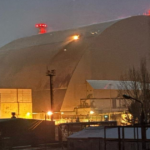Ukrainian President Volodymyr Zelensky has signed a decree implementing the decision of the National Security and Defense Council (NSDC) to introduce sanctions against a number of well-known individuals, including former President Petro Poroshenko, oligarch Ihor Kolomoisky, and businessman Kostiantyn Zhevaho. Viktor Medvedchuk and Hennadiy Boholyubov were also sanctioned.
What does this mean, what restrictions are imposed, and what prompted this decision?
What do the sanctions entail?
The NSDC decision imposes a number of serious restrictions on individuals targeted by the sanctions, including:
✅ Asset freeze – prohibition on using or disposing of their property and financial resources.
✅ Restriction on trade operations – effectively a ban on conducting business in Ukraine.
✅ Prohibition on capital outflow abroad – any financial transactions related to transferring funds outside the country are restricted.
✅ Suspension of fulfilling economic and financial obligations – this could effectively mean freezing debts or payments.
✅ Prohibition on participation in privatization – sanctioned individuals cannot buy or lease state property.
✅ Limitation on the use of radio frequency spectrum – ban on activities in the telecommunications sector.
✅ Termination of trade agreements and industrial programs – especially in defense and security sectors.
✅ Prohibition on acquiring ownership of land plots – restrictions on buying or owning land in Ukraine.
Such sanctions are unprecedented for Ukraine’s domestic policy, as they target former heads of state among others.
Why did Zelensky impose sanctions?
Sanctions were a result of a massive anti-corruption campaign and the fight against the influence of oligarchs. Here are the main reasons that could have led to such a decision:
🔹 Petro Poroshenko – former President of Ukraine, who has been the subject of multiple criminal investigations. He was accused of state treason, aiding businesses in the ORDL and other economic crimes.
🔹 Ihor Kolomoisky – a prominent oligarch who controlled “PrivatBank” before its nationalization. He is accused of financial manipulations, money laundering, and illegal withdrawal of billions of dollars.
🔹 Kostiantyn Zhevaho – a businessman and former MP, owner of the Ferrexpo group of companies. He is accused of financial manipulations and money laundering from banking institutions.
🔹 Victor Medvedchuk – a pro-Russian politician suspected of state treason and financing terrorism.
🔹 Gennadiy Bogolyubov – a business partner of Kolomoisky, also suspected of involvement in financial schemes.
Political Background of the Decision
Imposing sanctions against such influential individuals may have not only economic but also political consequences. During the war, Ukraine is trying to cleanse its internal politics from corrupt and pro-Russian influences, and also demonstrating to international partners its determination to fight against oligarchy.
This decision could also be part of strategic preparation for elections and strengthening the political influence of the current president.
What’s Next?
Sanctions are an important step in the fight against corruption and enhancing the country’s economic security. At the same time, individuals affected by the restrictions may challenge them in court, as has been the case in similar situations.
Will sanctions be able to really change the political and economic landscape of Ukraine? Only time will tell.


